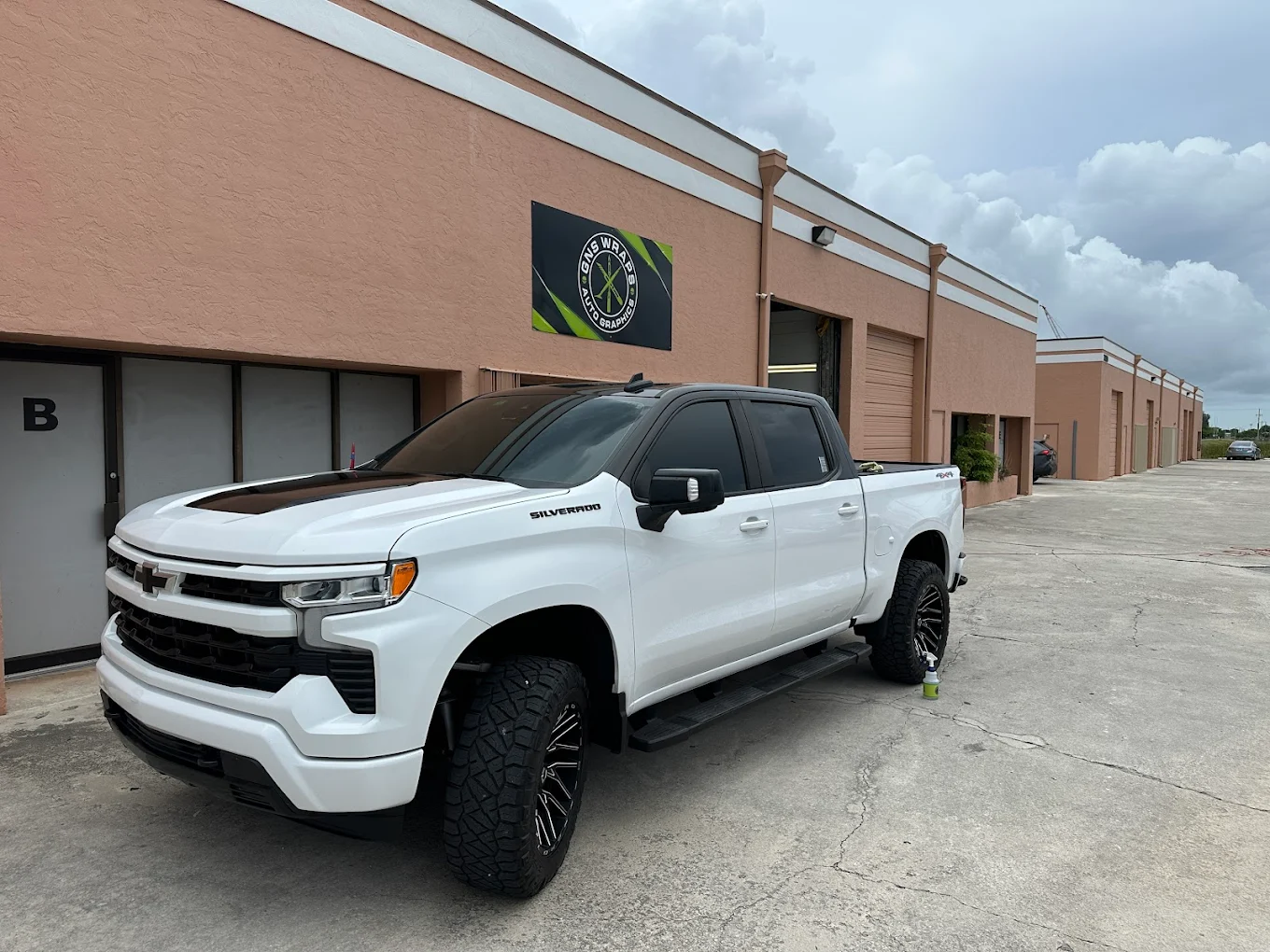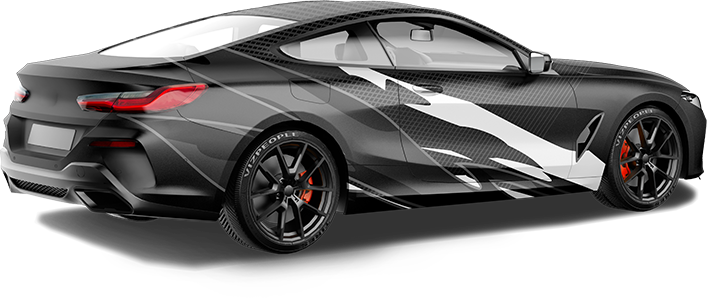Strategies to Defend Your Vehicle Wrap Against Heat, Humidity, Salt, and Storms

South Florida offers beautiful beaches, sun-filled skies, and vibrant culture. It also presents some of the harshest year-round conditions for vehicle owners, especially those with custom vinyl wraps. From intense UV exposure and salt-laden breezes to tropical storms and relentless humidity, protecting your car wrap is essential if you want it to maintain a clean, vibrant, and professional finish.
At GNS Wraps, we understand how South Florida’s climate affects vinyl wrap materials and adhesives. That’s why we design, install, and help maintain car wraps built for resilience, performance, and durability. In this comprehensive guide, we explore expert strategies for safeguarding your car wrap against extreme weather conditions unique to Florida.
Why South Florida’s Climate Demands Extra Car Wrap Protection
Unlike other regions, South Florida’s subtropical climate subjects vehicles to intense and varied elements. These challenges demand a year-round approach to car wrap protection.
Key climate-related threats include:
- High UV Index: Persistent sun exposure accelerates vinyl fading and adhesive breakdown.
- Salt Air Exposure: Proximity to the coast allows corrosive salt particles to embed in wraps and vehicle surfaces.
- Frequent Rain and Humidity: Moisture can degrade wrap adhesives and cause bubbling or lifting.
- Storm Season Hazards: Hurricanes and tropical storms bring debris, wind-driven sand, and water pressure to wrapped surfaces.
Choosing the Right Material for South Florida Weather
Vinyl wrap performance starts with quality materials. At GNS Wraps, we exclusively use premium-grade vinyls that are engineered for Florida’s environment.
Recommended materials for extreme weather conditions include:
- Cast Vinyl: Offers long-term durability and better conformability for curves and contours. It resists shrinking and fading under UV pressure.
- UV-Protective Overlaminate: This transparent coating shields the design layer from direct sunlight and salt spray, extending lifespan significantly.
- Marine-Grade Adhesive Formulas: These adhesives are designed to resist moisture intrusion and salt-related deterioration.
Year-Round Car Wrap Protection Strategies
Your wrap’s longevity depends not only on what it’s made of, but also how it’s cared for throughout the year. Follow these season-specific best practices for optimal protection.
Spring and Summer: UV and Heat Management
- Shaded Parking: Whenever possible, park in a garage or under shade to reduce direct sun exposure.
- Reflective Wrap Finishes: Light-colored or reflective vinyls deflect sunlight more effectively than dark or matte finishes.
- Routine Washing: Use pH-neutral, wrap-safe cleaners to remove pollutants and prevent material breakdown.
- Avoid Heat-Cured Car Washes: High-temperature automatic washes can cause bubbling or delamination.
Fall: Storm-Readiness and Wrap Reinforcement
- Check for Edge Lifting: Inspect wrap edges and seams for signs of lifting, which may allow water and debris to penetrate.
- Apply Ceramic Sealant: A high-quality ceramic coating acts as a hydrophobic barrier, protecting the wrap during heavy rain and wind.
- Remove Loose Debris Weekly: Salt spray, sand, and leaves can embed under edges and compromise adhesion.
Winter: Salt Air and Dew Point Challenges
- Rinse Weekly with Fresh Water: Especially for vehicles parked near the coast, rinsing off salt film reduces the risk of wrap corrosion.
- Dry After Washing: Air-drying can leave mineral deposits. Use a microfiber cloth to remove water droplets after each wash.
- Use Wrap-Friendly Wax Alternatives: Avoid petroleum-based waxes and stick to wrap-approved sealants for winter protection.
Proper Maintenance Schedule for Wrapped Vehicles in South Florida
GNS Wraps recommends a proactive maintenance schedule tailored to South Florida’s unique climate:
- Weekly Rinse: Use low-pressure water to remove surface dirt, sand, and salt particles.
- Biweekly Wash: Hand-wash with a mild, wrap-safe detergent using a non-abrasive sponge or mitt.
- Monthly Sealant Application: Apply a vinyl wrap-approved sealant or ceramic booster every 30 days for added UV and moisture protection.
- Quarterly Inspection: Check all seams, curves, and corners for early signs of lifting, fading, or damage.
- Annual Professional Review: Have your wrap inspected by the experts at GNS Wraps for detailed diagnostics and re-sealing.
Why Quality Installation Matters for Extreme Conditions
Even the best wrap materials will fail under poor installation conditions. Florida’s heat and humidity demand skilled, climate-aware installation practices.
At GNS Wraps, all installations are performed in a controlled environment using:
- Temperature-Stable Facilities: Prevents adhesive curing issues and material expansion during application.
- Certified Technicians: Our installers are trained in both aesthetic application and structural adhesion for extreme weather exposure.
- Edge Sealing Techniques: We apply protective edge treatments that prevent water intrusion and long-term lifting.
Additional Protective Solutions from GNS Wraps
Beyond full and partial wraps, GNS Wraps offers several enhanced protection options for high-risk environments:
- Paint Protection Film (PPF): An invisible layer that guards against chips, scratches, and road debris.
- Custom Fleet Graphics with UV Block: Ideal for business vehicles exposed to constant outdoor use.
- Ceramic Coatings for Vinyl Wraps: Professional-grade coatings that increase wrap resistance to heat, moisture, and pollutants.
How Businesses Can Extend Wrap Lifespan for Commercial Fleets
South Florida businesses with fleet vehicles need wrap protection strategies that balance branding impact with operational durability.
Best practices for commercial wrap longevity:
- Rotate Vehicle Storage Locations to avoid daily sun concentration.
- Educate Drivers on Maintenance by providing wrap-care instructions.
- Schedule Preventive Maintenance through quarterly services with GNS Wraps.
- Invest in High-Durability Laminates that last longer and reduce replacement frequency.
Signs Your Car Wrap Needs Professional Attention
Despite the best care, Florida’s climate eventually takes its toll. Watch for these warning signs that your wrap may need repair or replacement:
- Fading or Discoloration: Often caused by long-term UV exposure without adequate protection.
- Edge Lifting or Bubbling: Indicates adhesive failure due to moisture or heat damage.
- Peeling Around Curves or Seams: A signal that wrap installation or aging adhesives need evaluation.
- Chalky Texture or Rough Finish: A sign of oxidation or chemical exposure.
Protect Your Wrap Year-Round with South Florida’s Experts
Ready to reinforce your wrap for South Florida’s toughest weather? Let GNS Wraps help you keep your investment looking sharp season after season. Schedule a free consultation or get answers to your maintenance questions through our contact page.
Choose proven protection. Choose GNS Wraps.


